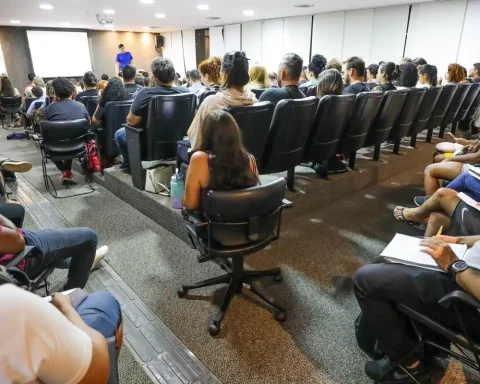The National Congress sent an appeal to the Federal Supreme Court (STF) against the suspension of so-called Pix amendmentsstating that the measure gives “excessive autonomy” to the Executive in controlling the Budget. 
The suspension of the Pix amendments was maintained on Thursday (8) by Minister Flavio Dino, of the STF, hours before the appeal made jointly by the Chamber and Senate. The measure was requested by the Attorney General of the Republic, Paulo Gonet, for whom this type of parliamentary amendment does not meet minimum transparency requirements.
The Congress’s legal representation wrote that the Constitution guarantees the division between the Powers in the management of the Budget. “The intention to subvert this constitutional division, delegating to the Executive an excessive autonomy without due legislative regulation, implies an attack on the constitutional determinations that structure the Democratic State of Law”, says the appeal.
Congress also argued that interrupting the transfer of resources could have serious consequences for the public interest, interrupting programs and the execution of works, for example, and causing “enormous legal uncertainty”.
Special transfer of resources
The Pix amendments allow for the special transfer of resources from the Union to states and municipalities through individual parliamentary indication, but without the need to present projects, indicate contemplated programs or enter into agreements, that is, without clarity about the real destination of public resources.
This type of amendment to the Budget gained strength after the Federal Supreme Court (STF) prohibited, in 2022, what became known as the “Secret Budget” – the allocation of resources from public coffers through amendments by the Budget rapporteur, which camouflaged the true sponsors of the transfers.
According to the Contas Abertas association, deputies and senators allocated R$6.7 billion in “Pix amendments” in 2023.
In the appeal, Congressional lawyers defended this type of amendment, arguing that, by imposing conditions for this type of amendment, the minister “distorts” the very nature of special transfers, which are provided for in the Constitution and whose objective is to give flexibility and autonomy to states and municipalities in the use of public funds.
The National Congress recognized the need to provide greater traceability to public money, but argued that it is up to the Legislative Branch, and not the Judiciary, to establish such criteria for next year’s Budget.
Criteria
In his decision on Thursday (8), Minister Flávio Dino maintained criteria that he had already determined in a first decision on August 1. He ordered that transfers can only be carried out if certain traceability and transparency criteria are met.
In the case of funds earmarked for the health sector, for example, the amounts may only be used after a favorable opinion from the competent bodies of the Unified Health System (SUS), the minister ordered. He only authorized the implementation of amendments in cases of ongoing works and public calamity.
In another decision on the 8th, Flávio Dino ordered Congress to send information and documents on the committee amendments (RP8), which were also inflated since the Supreme Court banned the secret budget through the rapporteur’s amendments, in 2022.
The Congressional appeal further states that the suspension of the Pix amendments could compromise “health, a sector that often requires rapid and flexible responses to meet the emerging demands of the population, may end up being overlooked due to the additional complications imposed by the new planning and approval requirement”.
















